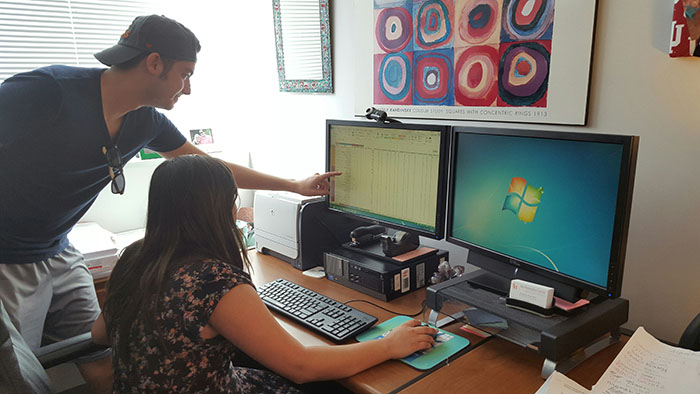Alexis Gonzales
This summer I had opportunity to participate in a research project under the supervision of Dr. Evans. Two other students and I examined all the tweets sent by candidates for Congress in 2014 during the last two months of the campaigns in order together more information on what types of tweets candidates tweeted. We each analyzed about 20,000 tweets, based on their message, characteristics, and tone, placing them into several different categories.
 During this project I was able to bring my knowledge and experience in politics and social media to the table. I had previously worked for a state representative during the spring and was in charge of his social media pages. I also in the past have worked with social media pages for my sorority and Huntsville’s local Wynne Home Art Center. Although the candidates analyzed were not state officials. I was still able to use my general knowledge about how politicians tweet or how their staffers tweet for them. This was an interesting change in perspective for me.
During this project I was able to bring my knowledge and experience in politics and social media to the table. I had previously worked for a state representative during the spring and was in charge of his social media pages. I also in the past have worked with social media pages for my sorority and Huntsville’s local Wynne Home Art Center. Although the candidates analyzed were not state officials. I was still able to use my general knowledge about how politicians tweet or how their staffers tweet for them. This was an interesting change in perspective for me.
When I began the project it seemed simple enough, read a tweet and categorize, but to my surprise it was not. I found myself debating in which category a tweet belonged. The surprises just kept coming. From my previous experience I learned the golden rule: constituents come first. Constituents are the ones who get you elected in office and are the people you are supposed to represent. From what I have learned their voices and opinions are very important to you or should be very important to you as a representative of the people. But, shockingly, a number of candidates running to represent the people attacked constituents in their districts. They argued with them over social media.
This project gave me an idea of differences and events that shape how candidates tweet and has interested me in furthering my studies of how candidates for both the U.S. House and Senate tweet. There are a number of individual-level and campaign specific characteristics that affect how candidates tweet: competitiveness, incumbency, gender, and partisanship. I'm hopeful that further exploring these characteristics can provide me with valuable academic and real-world political lessons that I can take with me as I move forward in my career
